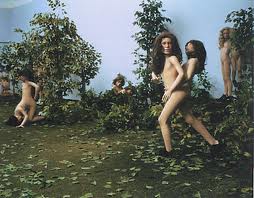
Re-booting my brain after being challenged–Challenged!–on my Feeding the Beast blog.
So I’ve found a couple sources of useful ideas. One is a facebook post by Ken Johnson, whose book, Are You Experienced: How Psychedelic Consciousness Transformed Modern Art, I reviewed a couple of months ago.
Johnson usually posts questions that test the viability of various ideas. His latest concerns an article by Freddie deBoer, a graduate student at the University of Rhode Island, for the online journal, The New Inquiry.

The article is titled “The Immiseration of the Creative Digital Class”, in other words, the impoverishment of its sense of purpose and meaning. DeBoer’s thesis is that members of this creative class have a level of self-awareness that is fueled by competition and consumerism. While some of deBoer’s ideas aren’t terribly original, the way he ties them together is impressive.
Here are some quotes from deBoer’s article—not so many, I hope, that I’ll get in trouble for copyright infringement. He starts with a reference to Internet users, whose claims about the importance of the Internet generally refer to their own importance. He continues with the following bits, among others.To wit:
- “For the postcollegiate, culturally savvy tastemakers who exert such disproportionate influence over online experience, the internet is above and beyond all else a resentment machine.”
- “The modern American ‘meritocracy,’ the education/employment vehicle, prepares thousands of upwardly mobile young strivers for everything but the life they will actually encounter.” Does anyone think of MFAs in studio when they read this?
- “There are those professions (think: finance) that extend the status contests of childhood and adolescence into the gray years … . But for a large chunk of the striving class, this kind of naked careerism and straightforward neediness won’t do. … Many were raised by self-consciously creative parents who wished for children who were similarly creative, in ethos if not in practice.” Here I flash to Jake and Dinos Chapman.
- But “ … self-conscious creativity becomes sublimated into the competitive project and becomes twisted.”
- The result is a loss of meaning, and into “ … this vacuum comes a relief that is profoundly rational in context—the self as consumer and critic. … the formerly manic competitors must come to invest the cultural goods they consume with great meaning.” This likely answers the question about why creative people spend large sums of money on eyeglass frames.

After reading and re-reading the article, I commented on Johnson’s post by saying that, in effect, these aspiring individuals are creating selves–by picking and choosing and buying various commodities–and then marketing those resulting “selves” to themselves. This is, admittedly, a developent of the old idea of life and “lifestyle” but I think that digital communications and the further growth of commodity culture have resulted in a qualitative difference. Anyway, when they’re brought themselves to a level of sufficient desirability, they (and their creative peers) consume their selves as though they were yet another product.
What does this have to do with art? I mean, apart from the obvious reference to those who get involved in art because it’s creative and you get to wear Toms. For starters, it means that too much art made today supposedly “critiques” and “subverts” consumer culture, even as it mirrors it and does nothing to challenge it–because the makers know nothing other than the consumer soup of which they’re an ingrediant.
But I began by mentioned triangulation and two sources of ideas. Getting into that second source needs another blog–about a wonderful new book addressing outsider art.


